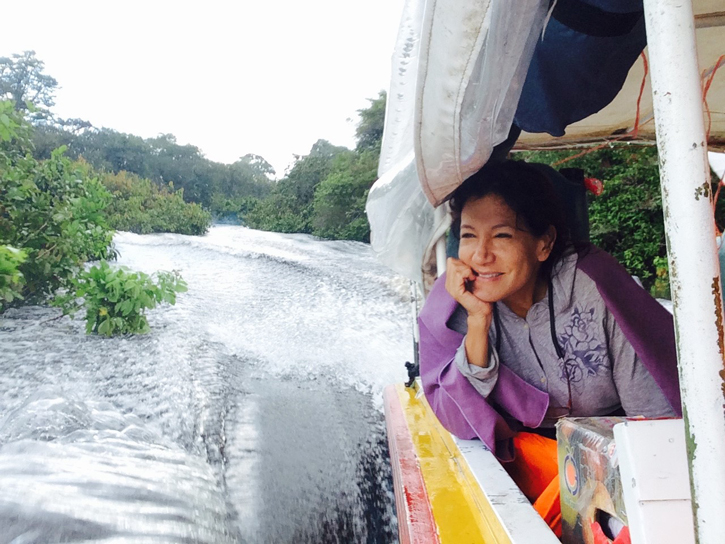
Giselle Huamani Ober. Photo provided.
Peru’s public school teachers went on strike in June over wages, working conditions and culturally discriminatory performance evaluations. Groups of teachers and supporters took to the streets, particularly in Lima and Cusco, creating civic havoc and disrupting traffic to vital Machu Picchu tourist sites.
The numbers of the protestors continued to swell throughout July. Tensions escalated to the point that many thought the new school year would be lost completely.
Finally, in August, after 50 days of disruptive protests, independent and government mediators working with President Pedro Pablo Kuczynski and the teachers helped put a mid-term end to the conflict.
George Mason University PhD student Giselle Huamani Ober was a player in following the mediation process of the prolonged and tense strike.
The Peruvian native, a student at George Mason’s School for Conflict Analysis and Resolution, is the conflict prevention advisor in Peru’s Office for the Prevention of Social Conflicts and Governance, a department in the cabinet-level Ombudsman Office.
“We monitored those conflicts, followed up with the public institutions to make sure that they are attending the conflict, and often had to mediate them and help solve the situation,” Huamani Ober said from her office in Lima about her role in the teacher strike. They worked with the Catholic Church and the Ombudsman Office “to get them to find a solution that was amicable to all that would not affect the children’s education any further.”
The teachers’ strike, which included 15,000 teachers, is one of 177 active social conflicts in Peru that Huamani Ober’s office is studying, evaluating, facilitating or mediating. Thirty-eight field offices report to the central office in Lima.
“We mediate in those cases in which the government has exhausted its formal channels,” she said.
Meanwhile, Huamani Ober is studying with three professors at the School for Conflict Analysis and Resolution, an effort that began in 1994 but was put on hold in 2004 by her humanitarian work and raising three small children.
“She’s one of the most determined students I know of,” said Mason professor Christopher Mitchell, who has worked with Huamani Ober since the beginning. “She’s been published in the U.S. and Peru, and probably knows more about mediation than many faculty members.”
As for living, working and writing her dissertation 3,500 miles away from Mason, Mitchell said, “I told her she’s crazy, but I’m quite convinced she’ll finish and do well.”
Huamani Ober said now that her children are grown —the youngest is still in college—she has more time to complete her studies, which heavily inform her work.
“Everything I do at work, I learned from [Mason],” she said. “Everything. And the things I’m learning now help me even more to have clarity.”
